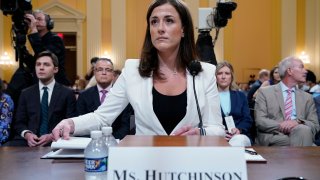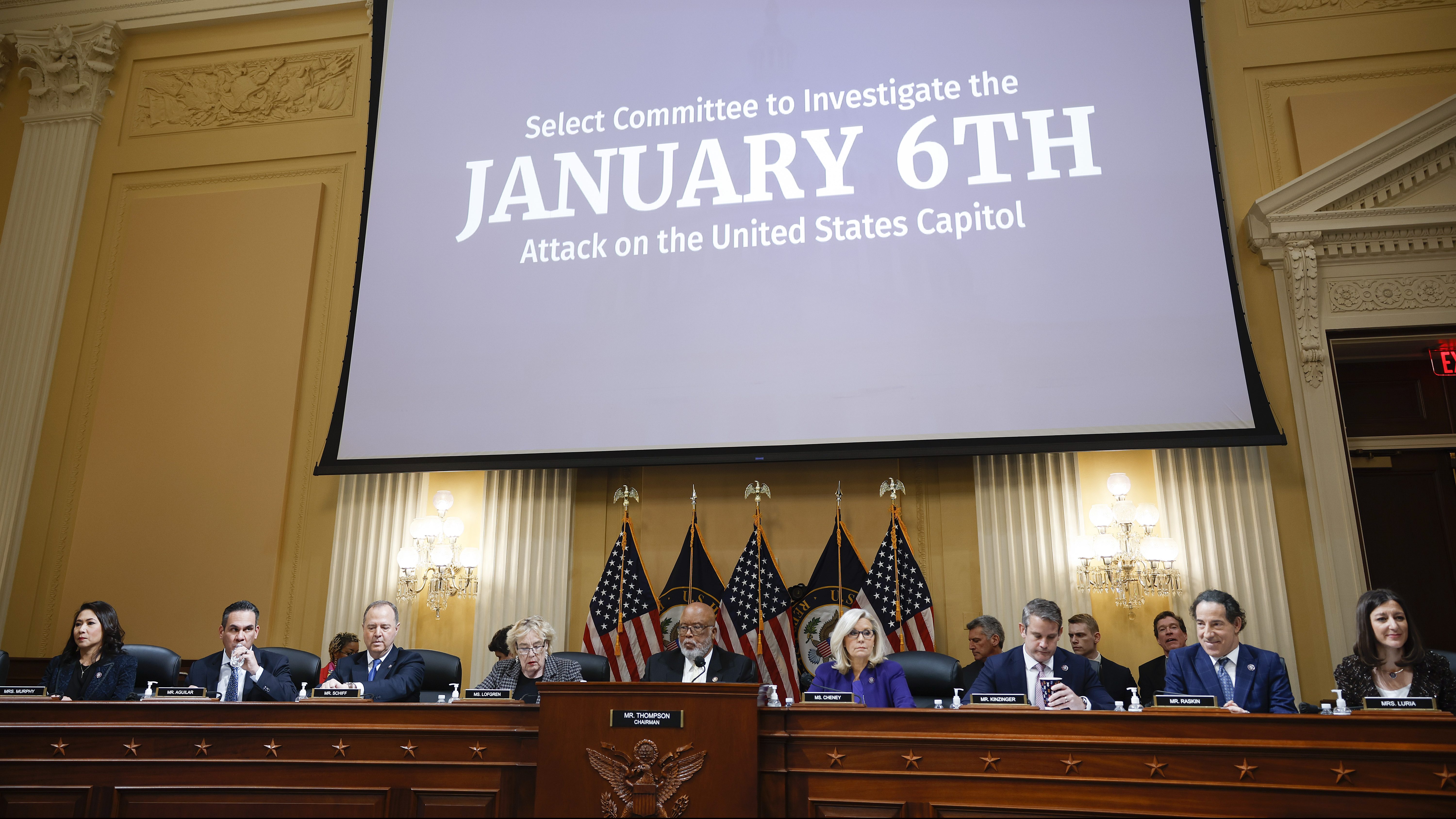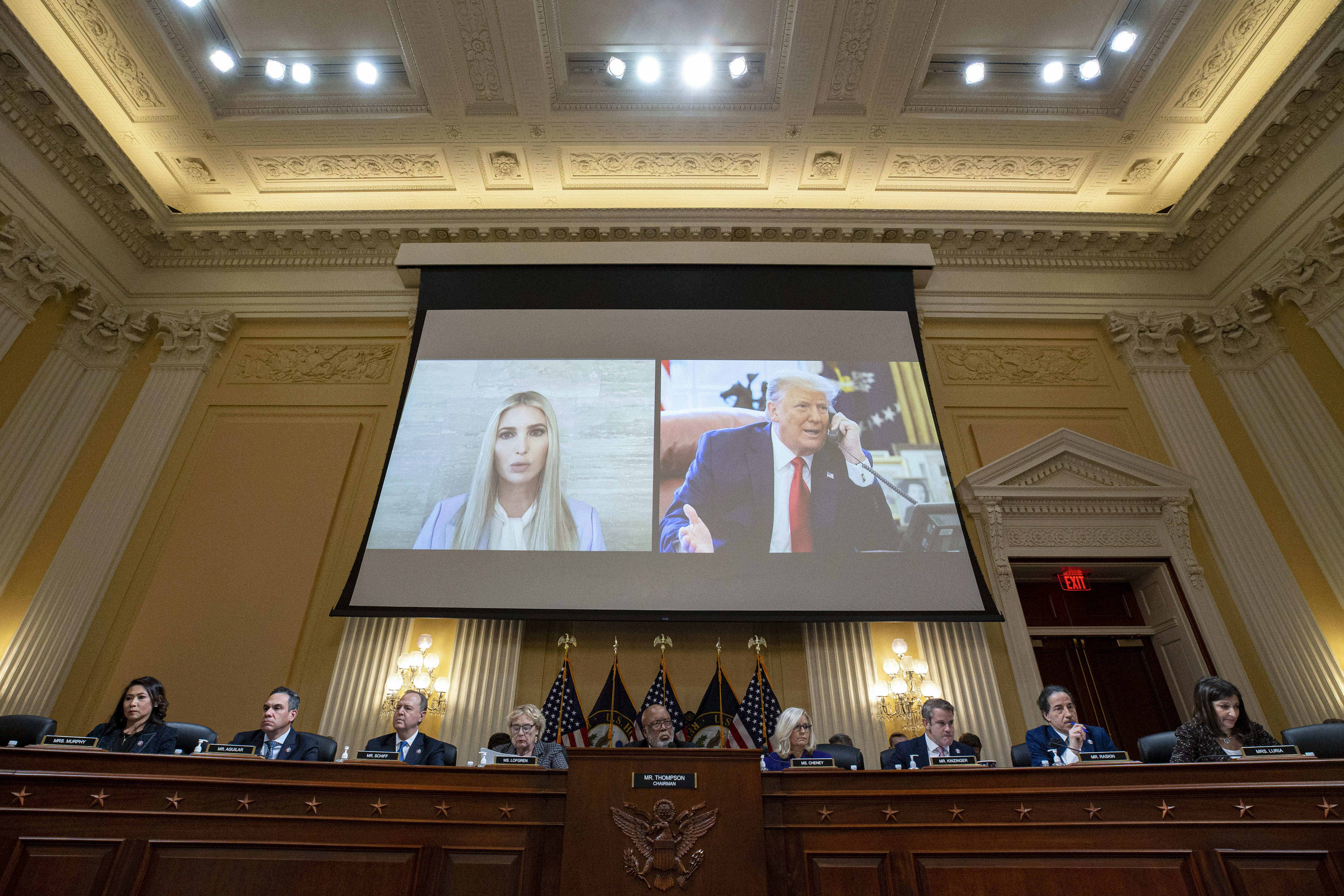
Former White House aide Cassidy Hutchinson told the House January 6th committee that her first attorney, a former ethics counsel in the Trump White House, advised her that she could say she did not recall incidents even if she remembered some details but not others.
“If you don’t 100% recall something, even if you don’t recall a date or somebody who may or may not have been in the room, that’s an entirely fine answer, and we want you to use that response as much as you deem necessary,” she said the lawyer, Stefan Passantino, told her.
“The committee doesn’t know what you can and can’t recall, so we want to be able to use that as much as we can unless you really, really remember something very clearly,” she said he told her.
Hutchinson, who worked for former chief of staff Mark Meadows, later switched lawyers. She returned to the committee after her public testimony for private interviews in September, transcripts of which were released on Thursday.
Hutchinson offered some of the most colorful testimony to the committee investigating the Jan. 6, 2021, attack on the U.S. Capitol.
Get Tri-state area news delivered to your inbox.> Sign up for NBC New York's News Headlines newsletter.
She described former President Donald Trump flinging a plate in the White House, leaving ketchup dripping down a wall, after Attorney General Bill Barr said the Justice Department had found no evidence of widespread voter fraud.
And she said Trump tried to grab the steering wheel of his presidential SUV when he realized the driver was not taking him to the U.S. Capitol after the rally on the Ellipse but rather back to the White House. He lunged at a Secret Service agent, Bobby Engel, in an account she attributed to another Secret Service agent, Tony Ornato, who was deputy chief of staff for operations.
“[H]e told me that the President tried to wrap his hands around Bobby’s neck and strangle him because he wouldn’t take him to the Capitol,” she said she told Passantino. “And Stefan said, ‘No, no, no, no no.’ I remember he, like, sat back in his chair, and he’s like, ‘No, no no no, no. We don’t want to go there. We don’t want to talk about that.’”
Passantino has taken a leave of absence from his law firm.
“As with all my clients during my 30 years of practice, I represented Ms. Hutchinson honorably, ethically, and fully consistent with her sole interests as she communicated them to me,” Passantino said in a statement to The Associated Press. “I believed Ms. Hutchinson was being truthful and cooperative with the Committee throughout the several interview sessions in which I represented her.”
Hutchinson said her breaking point came after Passantino told her he thought the best move for her was to stop cooperating with the Jan. 6 committee. He told her there was only a small risk that she would be charged with contempt of Congress, she said.
“Stefan, I really don’t want to gamble with this,” she said she told him.
She told the committee that she knew then that she had to switch lawyers. She had followed his bad legal advice, she said, and knew that he was not representing her interests.
“But I was not going to let this moment completely destroy my reputation, my character, and my integrity for a cause that I was starkly opposed to,” she said.
She was later represented by former Justice Department lawyer Jody Hunt.
Hutchinson said that when Passantino first contacted telling her he would be her lawyer, he said she would not have to pay him but did not say who was providing the funding.
Read More
“And he said, 'If you want to know at the end, we'll let you know, but we're not telling people where funding is coming from right now. Don't worry, we're taking care of you. Like, you’re never going to get a bill for this if that's what you’re worried about.'"
She said she later discovered that the money was coming from Trump allies.
On Monday, one of the committee members, Democratic Rep. Zoe Lofgren of California, said that the committee had learned that money Trump had raised “with false representations” after the 2020 election was then used to hire attorneys for witnesses who were called to testify, and to offer witnesses financial incentives.
Without offering names, Lofgren alleged that one attorney told a witness that she “could, in certain circumstances, tell the committee that she didn’t recall facts when she actually did recall them.” Lofgren said a lawyer dangled a lucrative job and “financial benefits” to a witness before her testimony.
“These offers were withdrawn or didn’t materialize as the reports of the content of her testimony circulated,” Lofgren said. “The witness believed this was an effort to affect her testimony.”
The Jan. 6 committee also released its final report, an 814-page account of Trump's effort to overturn the 2020 presidential election. It offers 11 recommendations to harden the country's institutions against any new attempts to incite insurrection.




